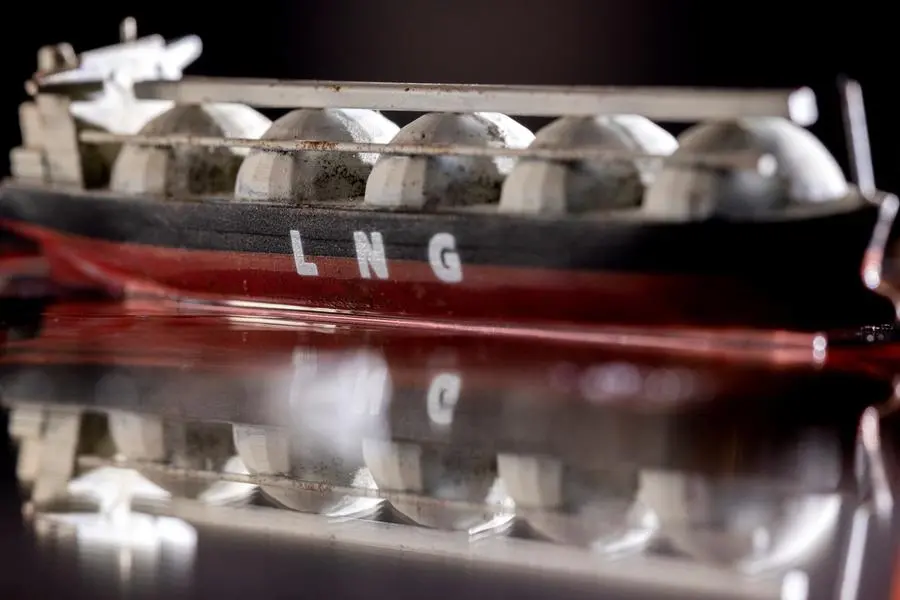PHOTO
Egypt has added three more liquefied natural gas (LNG) cargoes to its tender, taking the total to 20, in its biggest purchase of the seaborne fuel aimed to cover heavy summer demand from July through September, two trading sources said.
The tender, originally issued for 17 cargoes which was awarded on Wednesday, marks the country's return to being a net importer of gas after dwindling gas supplies led to a wave of rolling blackouts and forced temporary shutdowns of chemical and fertilizer plants.
"The cargoes were 17 originally and were increased by three more. All cargoes were fully awarded in less than one day amid stronger-than-expected appetite from bidders, despite market tightness and the geopolitical challenges in the region," one of the sources famiiar with the matter said.
"All cargoes awarded on a 180-day deferred payment basis and bids were received from more than 15 major LNG players" the source added.
Most of the cargoes will be received at the Hoegh Galleon floating storage and regasification unit (FSRU), which arrived at the Ain Sokhna port earlier this month, while some cargoes will be received at the Aqaba port in Jordan, the sources said.
Egyptian General Petroleum Corporation (EGPC), the parent company for Egypt's Natural Gas Holding Company (EGAS), has handled the tender for the first time on behalf of EGAS.
On Wednesday, trading sources told Reuters that the tender was awarded at a premium of $1.60-$1.90 to the benchmark Dutch TTF hub gas price.
The cargoes were awarded mainly to trading houses including Glencore Vitol, and Trafigura , the sources said.
Major players including BP and TotalEnergies , as well as smaller players, including commodity trader Hartree, landed a few cargoes, the sources said, without providing further detail.
Natural gas supplies that help Egypt generate electricity have been dwindling as its growing population of 106 million and urban development have been pushing up power needs while high cooling demand during summer drives up consumption.
Egypt had not imported LNG since late 2018, with only four domestically-produced cargoes received at its no longer available FSRU over the 2019-2023 period, as well as an imported partial cargo that was re-exported in late 2023, according to S&P Global Commodity Insights data.
It has bought four cargoes from the spot market this year, and had to pay a high premium, partly due to seeking prompt deliveries.
(Reporting by Marwa Rashad; Additional reporting by Ron Bousso on London and Emily Chow in Singapore; Editing by Nina Chestney)





















